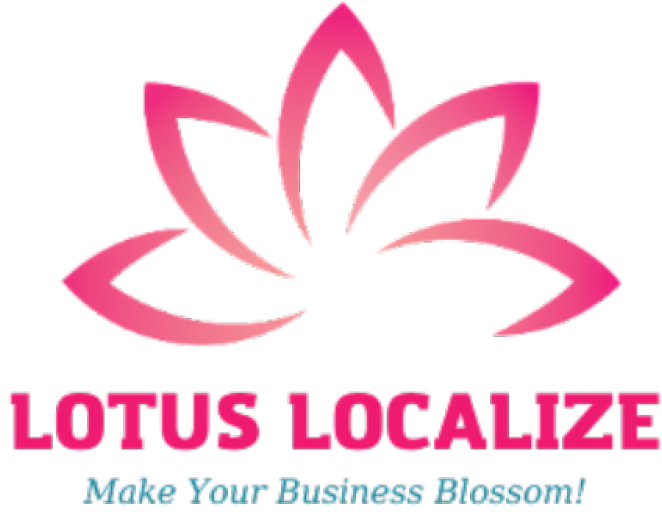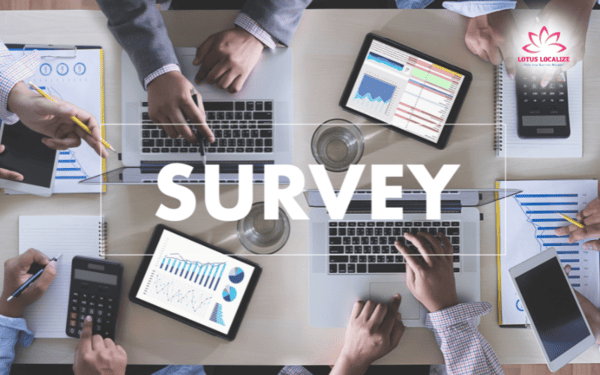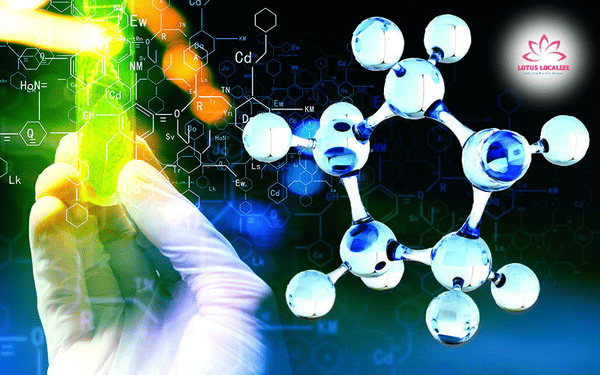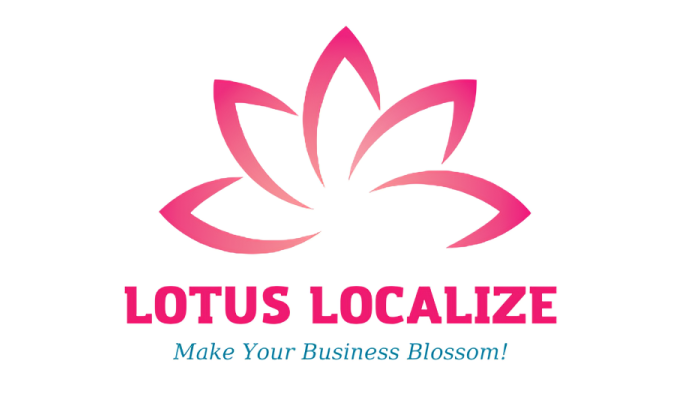
How healthcare translation strengthens patient trust and elevates global health standards
In today’s interconnected world, healthcare systems and medical practices are more globally influenced than ever. As patients, doctors, and medical research increasingly cross borders, language barriers have become a critical concern in delivering safe, effective care. The need for healthcare translation—translating complex medical information accurately between languages—has surged, addressing a vital challenge in global health services. From ensuring that patients understand their diagnoses to allowing medical teams worldwide to share breakthrough research, healthcare translation serves as an essential bridge for accessible, inclusive, and trustworthy healthcare.
Accurate healthcare translation does more than convey information; it fosters patient confidence, upholds safety standards, and enables consistent care across languages and cultures. This article explores the importance of healthcare translation, the specialized expertise it requires, and the profound impact it has on enhancing patient experiences and improving health outcomes worldwide.
What is healthcare translation? The lifeline for patient-centered communication
Healthcare translation is a specialized branch of translation that adapts critical medical information into other languages to ensure clear, effective communication between healthcare providers and patients who speak different languages. This form of translation goes beyond mere language substitution, requiring deep knowledge of both medical terminology and cultural contexts to ensure that healthcare information is understood precisely as intended.

Unlike general translation, where flexibility may exist, healthcare translation demands absolute accuracy. In medicine, a misinterpreted term or instruction can lead to misdiagnoses, improper treatment, or serious health consequences. Healthcare translators work with a wide array of documents, each demanding unique attention to detail. These include:
- Medical records: Translating patient histories and treatment records allows for continuity of care across language barriers, ensuring that any healthcare professional can access essential information about the patient’s medical background.
- Patient instructions and consent forms: From pre-surgery instructions to post-treatment care guidelines, these documents need to be translated in a way that the patient understands fully, minimizing risks associated with treatment procedures.
- Pharmaceutical labels and dosage instructions: Medication labels must be crystal clear to avoid potentially dangerous dosing errors, especially when dealing with patients unfamiliar with a new language.
- Clinical research and study documents: As healthcare becomes more collaborative across borders, research materials must be translated to advance global medical knowledge and foster innovative treatments accessible to all.
By prioritizing exactness and clarity in each of these document types, healthcare translation becomes a crucial player in the quality of patient care and overall trust in medical services.
Read more: Unveiling the critical role of medical interpreters in healthcare
Why is healthcare translation important? Building a foundation of safety and trust
Effective communication in healthcare is about far more than words; it’s about creating a safe environment for patients, reducing potential harm, and building trust. The stakes are incredibly high in medical settings, where even a minor error can lead to significant consequences. Miscommunication in healthcare can result in a range of risks:
- Misdiagnoses and incorrect treatments: If a healthcare professional misinterprets a symptom description or medical history due to translation errors, it could lead to a misdiagnosis, followed by inappropriate treatment. This not only risks patient health but also diminishes trust in healthcare providers.
- Adverse reactions and side effects: Misunderstood dosage instructions or contraindications on medication labels can lead to adverse drug reactions or ineffective treatments.
- Reduced patient compliance and understanding: When patients don’t fully comprehend their medical conditions or treatment instructions, they may not adhere to prescribed treatment plans, leading to prolonged illnesses or complications.
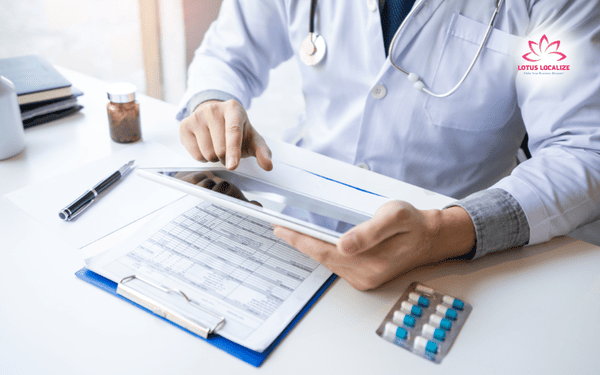
Through high-quality healthcare translation, these risks are minimized, directly enhancing patient safety and quality of care. A well-translated document doesn’t just inform—it empowers patients, helping them make informed decisions about their health. It encourages openness between patients and providers, building a foundation of trust that is essential for effective care. Additionally, translated materials that patients understand can encourage them to seek medical help earlier, potentially catching illnesses in their early stages and leading to better health outcomes.
Key challenges in healthcare translation: Accuracy, cultural nuance, and legal standards
Healthcare translation is a highly demanding field, with each translation presenting unique challenges that require skill, experience, and attention to detail. Some key challenges include:
- Medical jargon and terminology: Medical language is highly specialized, with terminology that may have no direct equivalent in the target language. Translators must be able to accurately convey complex terms, such as those related to anatomy, procedures, or pharmaceuticals, in ways that are understandable and accurate for the intended audience.

- Cultural sensitivity and relevance: Culture plays a huge role in how health and wellness concepts are perceived. Certain medical terms, health practices, or even dietary advice might be unfamiliar or culturally inappropriate in different regions. Skilled translators understand these nuances and adapt content to respect and resonate with each culture, improving patient understanding and compliance.
- Legal compliance and privacy standards: Healthcare translation must align with strict legal and privacy regulations, such as HIPAA in the U.S. or GDPR in the EU, to protect patient confidentiality. Translators must also ensure that consent forms, legal disclaimers, and patient rights documents meet the legal standards of the target country, safeguarding both the patients and the healthcare providers involved.
Inaccurate translations or cultural missteps in healthcare can lead to dire consequences, ranging from ineffective treatments to severe patient harm. Because the cost of error is so high, healthcare translation demands an unparalleled level of diligence, expertise, and precision.
The role of professional healthcare translators: Experts in language and medicine
To meet the demands of healthcare translation, it’s essential to engage professional translators with specialized credentials. Certified healthcare translators bring a unique combination of language skills and medical knowledge, which enables them to navigate complex terminology and sensitive patient contexts effectively. Here’s why professional healthcare translators are invaluable:
- Deep knowledge of medical terminology: Professional healthcare translators have training in medical science, making them familiar with complex terminologies and concepts. Their expertise allows them to interpret subtle differences in meaning that could be life-saving.

- Mastery of target languages and dialects: It’s not just about understanding the medical terminology; translators must be fluent in the target language and its dialects. This is especially important when translating documents for specific regions or communities where subtle linguistic differences can affect understanding.
- Technological tools for consistency and accuracy: Translators often use translation memory systems, term bases, and specialized software that enhance accuracy by ensuring consistent use of medical terms across documents. These tools also enable translators to manage large projects efficiently, even under tight deadlines.
Hiring certified healthcare translators is not merely a good practice; it’s a necessity to ensure that every patient receives the most accurate, understandable, and respectful care possible, regardless of language barriers.
Read more: The key to success in aerospace: Why aviation translation matters?
The benefits of accurate healthcare translation: Enhancing care and building patient confidence
Accurate healthcare translation has a profound impact on both patient and provider experiences. Here are some of the primary benefits:
- Improved patient trust and satisfaction: Trust is foundational in the patient-provider relationship, and clear communication is key to fostering that trust. When patients receive translated materials that they can fully understand—whether it’s treatment plans, medication instructions, or discharge summaries—they are more likely to feel confident in their healthcare decisions. This understanding not only makes patients feel valued and respected but also encourages them to be more engaged in their own care, leading to a more collaborative healthcare experience. Ultimately, enhanced patient satisfaction translates into better health outcomes and a more positive healthcare environment.

- Higher quality of care and compliance: Effective communication is crucial for ensuring that patients comprehend the medical advice and instructions given to them. When patients clearly understand their conditions, treatment options, and follow-up care, they are much more likely to adhere to prescribed treatments and recommendations. Compliance with medical advice is essential for achieving positive health outcomes, as it minimizes the risk of complications and fosters a more proactive approach to health management. Moreover, when patients are informed and involved, they tend to make healthier lifestyle choices, further improving their overall health.
- Reduction in medical errors: Inaccurate translations can lead to serious misunderstandings, potentially resulting in harmful medical errors. By providing precise and clear translations of medical information, the risk of miscommunication is significantly reduced. This is particularly critical when it comes to medication dosages, allergies, or specific treatment protocols, where even a minor error can have severe consequences for patient safety. Accurate healthcare translation acts as a safeguard, helping healthcare providers avoid costly mistakes and ensuring that patients receive the right care at the right time.
- Efficiency in cross-border healthcare services: Healthcare systems often engage with patients from diverse linguistic backgrounds. Accurate healthcare translation facilitates seamless communication across borders, enabling healthcare providers to share vital medical records, research findings, and best practices. This exchange of information is essential for maintaining high-quality care standards, especially in multicultural healthcare environments. By breaking down language barriers, healthcare translation promotes collaboration among medical professionals and fosters a more integrated approach to patient care, ultimately leading to improved health outcomes for diverse populations.
Healthcare translation in the age of globalization: Meeting a growing demand
In today’s globalized world, healthcare translation is in higher demand than ever. Migration, international workforces, and multicultural societies are transforming healthcare, requiring services that cater to diverse language needs. With populations on the move and cross-border healthcare collaboration rising, healthcare translation is essential for:
- Supporting multilingual populations: From urban centers to rural regions, healthcare providers are increasingly serving patients from a variety of linguistic backgrounds. Translating healthcare information is key to fostering inclusivity and equality in healthcare access.

- Responding to global health crises: During pandemics or widespread health emergencies, such as COVID-19, accurate and timely translation of health information saves lives. Essential guidelines, safety instructions, and vaccine information must be made available in multiple languages to ensure comprehensive understanding across communities worldwide.
As healthcare systems become more interconnected, the role of healthcare translation grows. It not only supports patient health but also strengthens global health security by ensuring that critical information can be shared and understood universally. Through professional healthcare translation, medical knowledge transcends borders, enabling a healthier, more inclusive world for all.
At Lotus Localize, we specialize in providing high-quality healthcare translation services tailored to meet your needs. Our team of certified translators combines linguistic expertise with medical knowledge to ensure precise communication in any healthcare setting. Contact us today to learn how we can help you bridge language barriers and enhance patient care in your organization!
If you have any questions or need assistance with translation services for many industries: financial translation, medical translation, marketing translation, manufacturing translation, government translation,… and interpretation services please contact Lotus Localize immediately at 0866 224 968 or visit the website: lotus-localize.com for advice on the best solutions!
QUALITY PROMISE
Lotus Localize offers consistent, high-quality service delivery in all customer engagements. Our in-house translators and staff adhere to well-established business processes, allowing us to communicate properly, deliver on time, and surpass client expectations.
